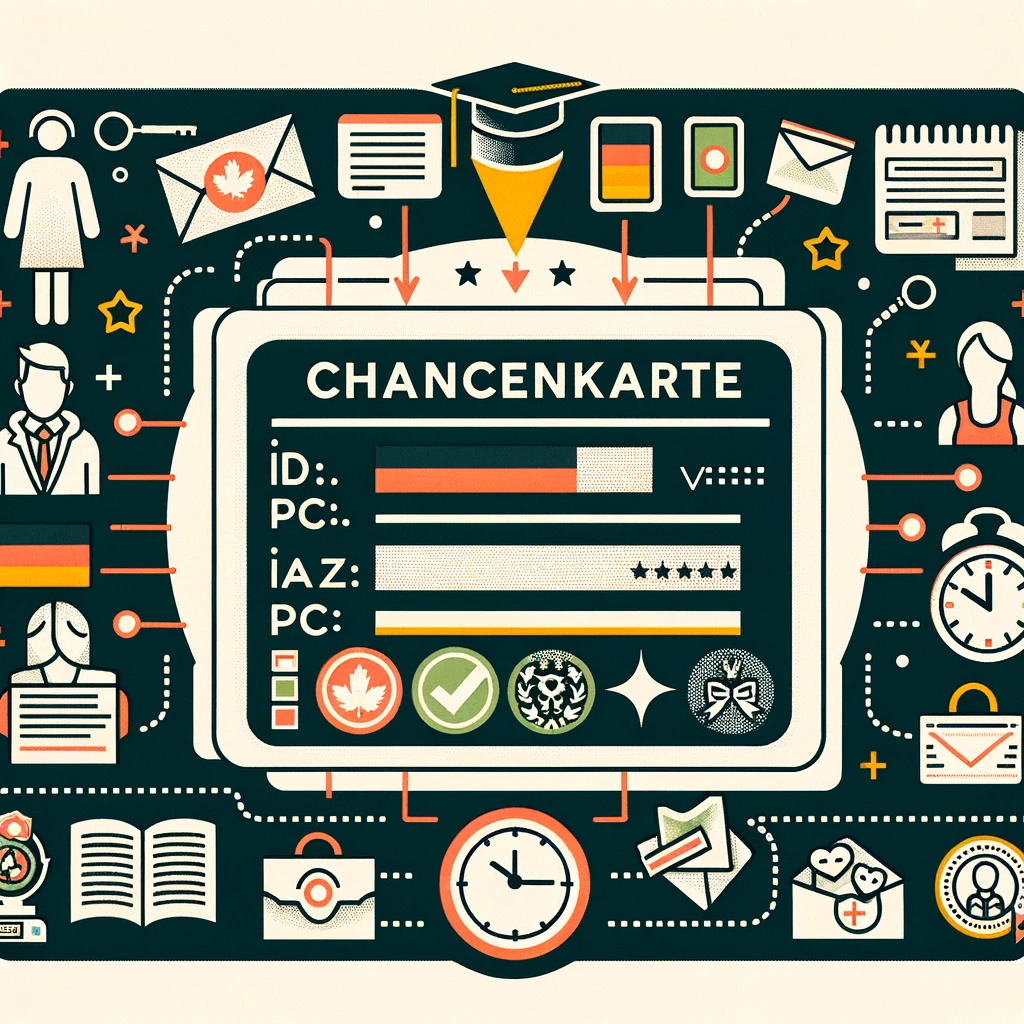What is the German Job-Seeker Visa?
The Job-Seeker Visa is a temporary residence permit allowing non-EU nationals to remain in Germany while seeking employment. It is designed to attract skilled professionals, reduce labor shortages, and simplify immigration for individuals with strong qualifications.
- Validity: up to 12 months.
- Purpose: exclusive job search (no immediate employment allowed).
- Transition: once employment is secured, the visa can be converted into a work permit or EU Blue Card.
The 2025 Points System
Germany is introducing a points-based assessment similar to models in Canada or Australia. Applicants must collect at least 6 points from criteria such as:
- Academic qualifications (recognized degree or equivalent).
- Professional experience (years in a relevant occupation).
- Language skills (German or English).
- Age (younger applicants score higher).
- Connection to Germany (previous stays, family, or education).
- Occupation in shortage fields (STEM, IT, healthcare, etc.).
This system ensures transparency and prioritizes candidates most likely to integrate successfully into Germany’s economy.
Eligibility Requirements
To qualify for the German Job-Seeker Visa 2025, applicants must demonstrate that they can realistically integrate into the labor market. The main requirements include:
- Completed higher education (university degree or equivalent qualification, recognized in Germany).
- Professional experience relevant to the intended job field.
- Proof of sufficient financial means to support yourself during your stay (e.g., blocked account or sponsorship).
- Comprehensive health insurance valid for Germany.
- Accommodation details for the intended period of stay.
- Minimum of 6 points under the new system (see above).
In some cases, applicants with vocational training instead of a university degree may also qualify if they demonstrate strong professional experience and meet other point-based criteria.
Application Process
The Job-Seeker Visa application is generally submitted at the German embassy or consulate in the applicant’s home country.
Steps include:
- Collect documents: university degree or vocational certificates, proof of work experience, CV, financial proof, health insurance, passport.
- Submit application: embassy appointment, application form, visa fee.
- Attend interview: applicants may need to explain their job search strategy and motivation.
- Processing time: usually 6–12 weeks.
- Decision and entry: if approved, the applicant receives a visa for up to 12 months.
- Upon arrival in Germany, the visa must be registered at the local Ausländerbehörde. Once employment is secured, the Job-Seeker Visa can be converted into an EU Blue Card or national work permit.
Rights and Limitations
- No immediate employment: Holders cannot start working until they obtain a job offer and change their status.
- Permitted activities: job interviews, networking events, short unpaid internships, company visits.
- Conversion to residence permit: allowed if the employment contract meets legal requirements (salary thresholds, recognition of qualifications).
- No extension beyond 12 months: applicants who fail to find a job must leave Germany, though they can reapply later.
Common Mistakes
- Insufficient proof of funds: not meeting the required blocked account level is a frequent cause of rejection.
- Unrecognized qualifications: degrees must be verified in the ANABIN database or through formal recognition procedures.
- Weak job search plan: embassies increasingly expect applicants to present a credible strategy for finding work in Germany.
- Language underestimation: while English can be sufficient for some jobs, lack of German skills reduces chances dramatically.
Next Steps
The German Job-Seeker Visa 2025 offers a clear, structured pathway for professionals aiming to build a career in Germany.
With the new points system, applicants benefit from greater transparency, but must also demonstrate real potential for integration. Proper preparation — from recognized qualifications to financial proof and language skills — is essential.
If you are an individual who intends to enter Germany for a short- or long-term stay, my law office provides clear advice on eligibility for entry to Germany based on the job-seeker visa and its timeline. You may also start with the Eligibility Assessment to assess if you already qualify for a long-term residence title, book a Consultation to discuss any immigration-related topics or contact my law office directly for any questions ahead.
For businesses, employers and HR departments, my law office provides end-to-end support for assignments, EU Blue Card and skilled worker routes for potential employees. The Eligibility Assessment is designed to evaluate whether your candidate qualifies for a German work visa. You may also request a Business Activity Check for short-term business travel compliance.

